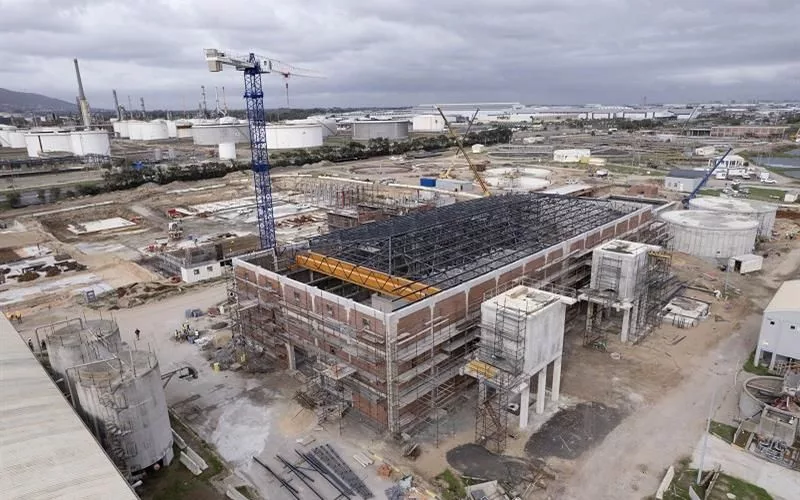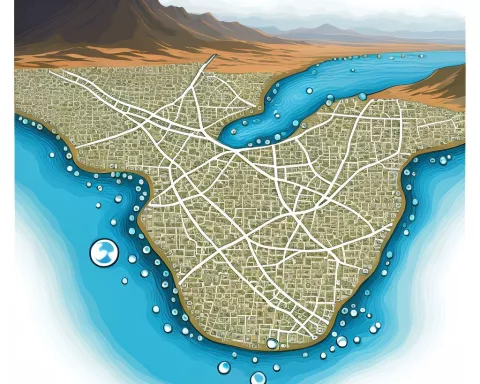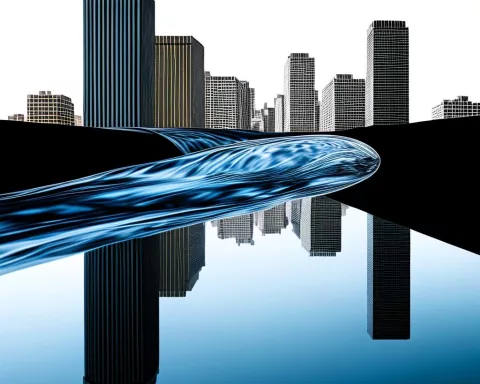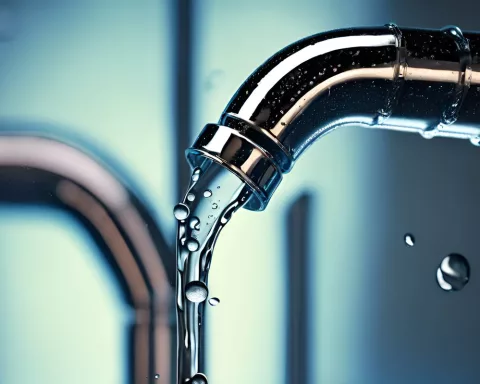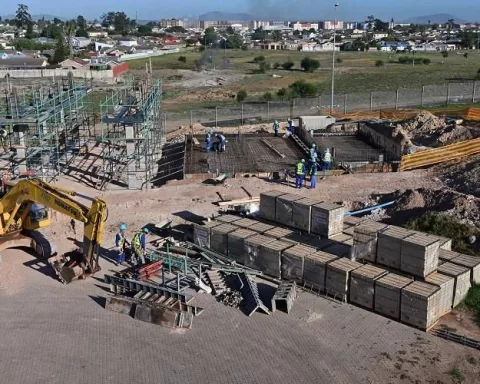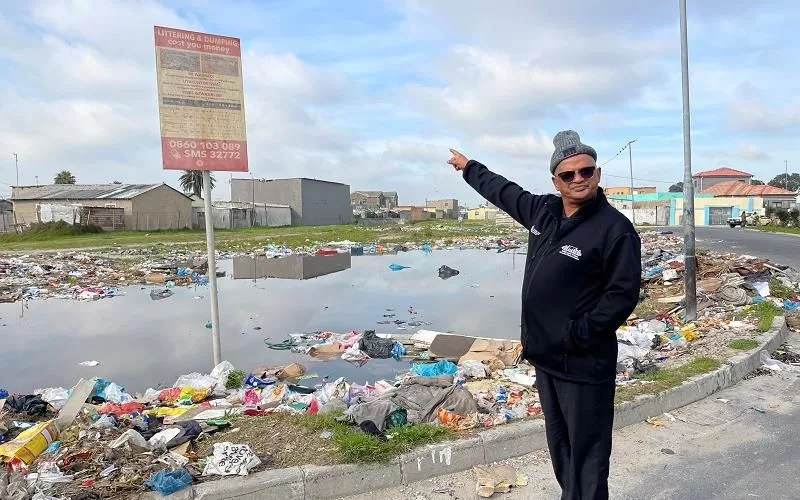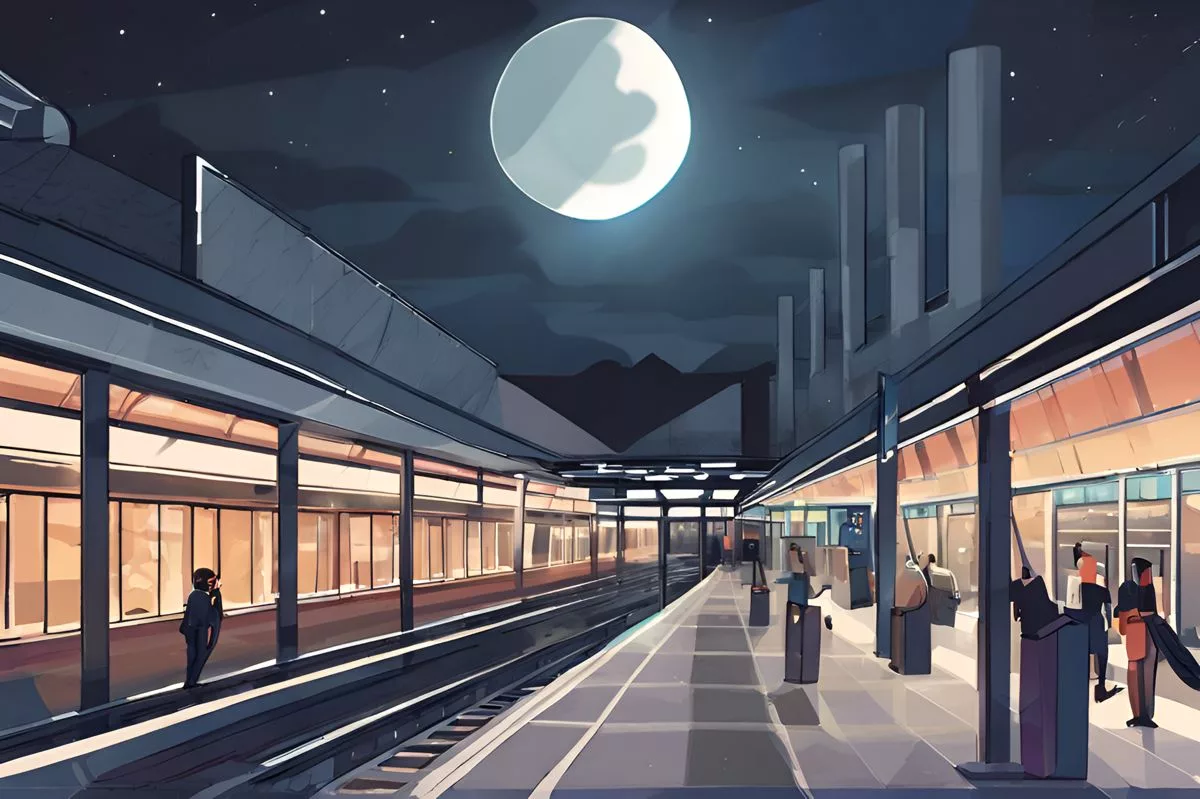Milnerton Lagoon is being improved to boost water quality and ecological health, with the City of Cape Town committed to sustainable water management. Projects such as the Koeberg Pump Station’s maintenance, Ryan’s Pond’s contamination prevention, and the Montague Drive Sewer Upgrade Project’s progress demonstrate this commitment. Plans to enhance the Potsdam Wastewater Treatment Works and address sediment and organic matter build-up also showcase the city’s dedication to environmental responsibility. These ongoing improvements and future plans show a promising outlook for the future of this environmental treasure.
Milnerton Lagoon is undergoing improvements to elevate water quality and ecological health. The City of Cape Town is committed to sustainable water management, exemplified by the Koeberg Pump Station’s maintenance, Ryan’s Pond’s contamination prevention, and the Montague Drive Sewer Upgrade Project’s progress. Plans to enhance the Potsdam Wastewater Treatment Works and address sediment and organic matter build-up also demonstrate this commitment. The Milnerton Lagoon serves as an example of the potential outcome of prioritizing environmental responsibility.
Section 1: Boosting Water Quality and Ecosystem Health
Abrupt advancements are set in motion to elevate both water quality and the overall ecological health of the renowned Milnerton Lagoon. The potential of this strategic move was echoed recently in a quarterly stakeholder engagement discussion. City representatives highlighted the importance of critical infrastructure projects, regular maintenance, and potential plans, encompassing various dredging strategies. This promise exhibits the City’s continuous commitment to ecologically sound water management.
Section 2: The Koeberg Pump Station: A Symbol of Sustainable Commitment
The [Koeberg Pump Station](https://capetown.today/city-of-cape-town-upgrades-sewer-pump-stations/) (PS) reflects this unwavering commitment, where maintenance isn’t just a necessity, but an integral part of the day-to-day operations. Regular manual cleaning ensures that debris is effectively eliminated, while daily inspections ensure the pumps’ efficient operation. Additionally, continuous monitoring of wet well levels affirms the full operational status of all pumps, including the Pioneer pump.
The Koeberg PS has seen recent improvements that have broadened its operational capabilities. The addition of manual screens, the replacement of faulty valves, and a new alarm system collectively optimize the station’s functionality. The inclusion of an additional mobile pump and four new pump impellers further enhance this. Looking ahead, the planned construction of a new pump station, an emergency overflow storage pond, and two 900mm parallel rising mains are set to increase Koeberg PS’s potential even further.
Section 3: Ryan’s Pond and Water Demand Management
Ryan’s Pond, another essential site, plays a key role in warding off contamination in the Diep River and Milnerton Lagoon. Two stationary mobile pumps enable this process, effectively reducing environmental pollution.
Meanwhile, Water Demand Management investigations in Joe Slovo and Phoenix Park have revealed inconsistencies between water demand and sewage flow rates. Actions such as valve checks, repairs, and zero-pressure tests have effectively stabilized the water pressure in Joe Slovo. This stability, combined with reduced water pressure, curtails water leaks, subsequently reducing the volume of polluted storm water that needs to be diverted to pump stations.
Section 4: Montague Drive Sewer Upgrade Project
The Montague Drive bulk sewer upgrade project is currently at a completion rate of 50% for the first phase. Progress is evident in various components like the sand trap, screening facility, and micro-tunneling. The subsequent phase, currently in the design process, is scheduled for construction from August 2025 to December 2026.
Section 5: Potsdam Wastewater Treatment Works
The Potsdam Wastewater Treatment Works (WWTW) have faced challenges that have required comprehensive equipment and process control. Over 30,000 cubic meters of solids, grit, sand, and other inorganic materials have been extracted from their Primary Settling Tanks (PSTs), a process that takes approximately eight weeks for a single PST.
Fortunately, a series of future plans are in line to enhance the effluent quality. These plans include mechanical, electrical, and civil project components, ultrafiltration works, dewatering, and the renovation of old sludge storage ponds. The introduction of a new dewatering system, an ultrafiltration building, raw sewage inlet works, and a Membrane Bioreactor are also in the pipeline.
Section 6: Addressing Sediment and Organic Matter Build-Up
In order to tackle the accumulation of sediment and organic matter in the lower Milnerton Lagoon, the City has investigated multiple dredging options. The selected approach involves dredging a primary channel and eliminating organic materials from the sand with cyclone technology. This method will redeposit clean sand into the lagoon while disposing of approximately 600 cubic meters of organics and sediment. The project, which is expected to cost about R70 million and span 11 months, is pending environmental authorization.
The Milnerton Lagoon serves as a brilliant illustration of the potential outcome of prioritizing environmental responsibility. The ongoing improvements and upcoming plans reinforce the City’s commitment to sustainable water management, showing a promising outlook for the future of this environmental treasure.
1. What improvements are being made to Milnerton Lagoon?
Milnerton Lagoon is undergoing improvements to boost water quality and ecological health, with plans to enhance the Potsdam Wastewater Treatment Works and address sediment and organic matter build-up.
2. What is the Koeberg Pump Station and how does it reflect the City’s sustainable commitment?
The Koeberg Pump Station is a symbol of sustainable commitment, where maintenance is integral to day-to-day operations. Regular manual cleaning, daily inspections, and continuous monitoring of wet well levels ensure efficient operation. Recent improvements include the addition of manual screens, replacement of faulty valves, and a new alarm system.
3. How does Ryan’s Pond prevent contamination in the Diep River and Milnerton Lagoon?
Ryan’s Pond plays a key role in preventing contamination in the Diep River and Milnerton Lagoon, with two stationary mobile pumps effectively reducing environmental pollution. Water Demand Management investigations in Joe Slovo and Phoenix Park have also stabilized water pressure, reducing the volume of polluted storm water that needs to be diverted to pump stations.
4. What is the progress of the Montague Drive Sewer Upgrade Project?
Currently at a completion rate of 50% for the first phase, the Montague Drive Sewer Upgrade Project shows progress in various components like the sand trap, screening facility, and micro-tunneling. The subsequent phase is scheduled for construction from August 2025 to December 2026.
5. How is the Potsdam Wastewater Treatment Works being enhanced?
Future plans for the Potsdam Wastewater Treatment Works include mechanical, electrical, and civil project components, ultrafiltration works, dewatering, and the renovation of old sludge storage ponds. The introduction of a new dewatering system, an ultrafiltration building, raw sewage inlet works, and a Membrane Bioreactor are also in the pipeline.
6. How is sediment and organic matter build-up being addressed in Milnerton Lagoon?
Multiple dredging options have been investigated to tackle the accumulation of sediment and organic matter in the lower Milnerton Lagoon. The selected approach involves dredging a primary channel and eliminating organic materials from the sand with cyclone technology. The project is pending environmental authorization and is expected to cost about R70 million and span 11 months.

